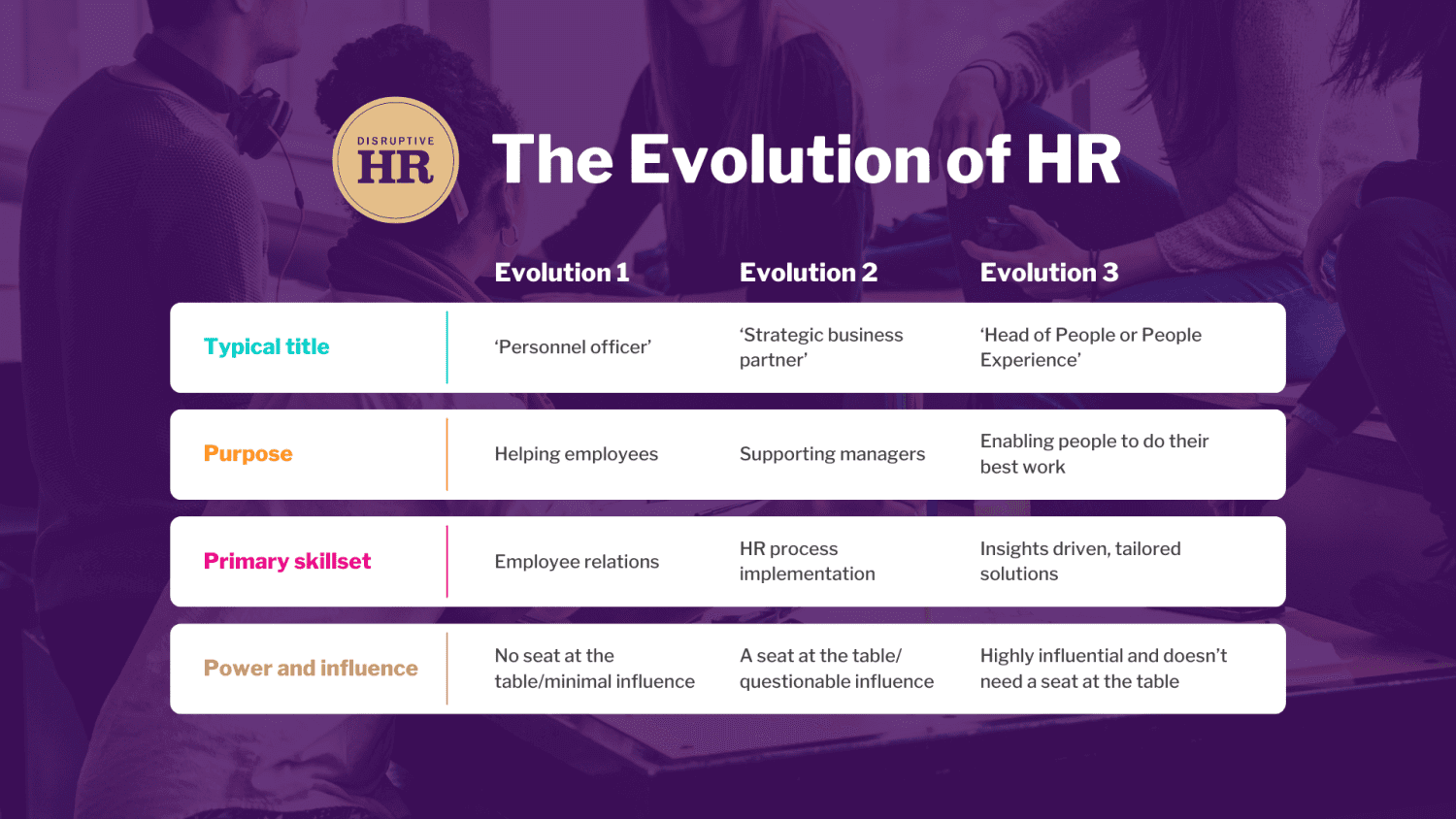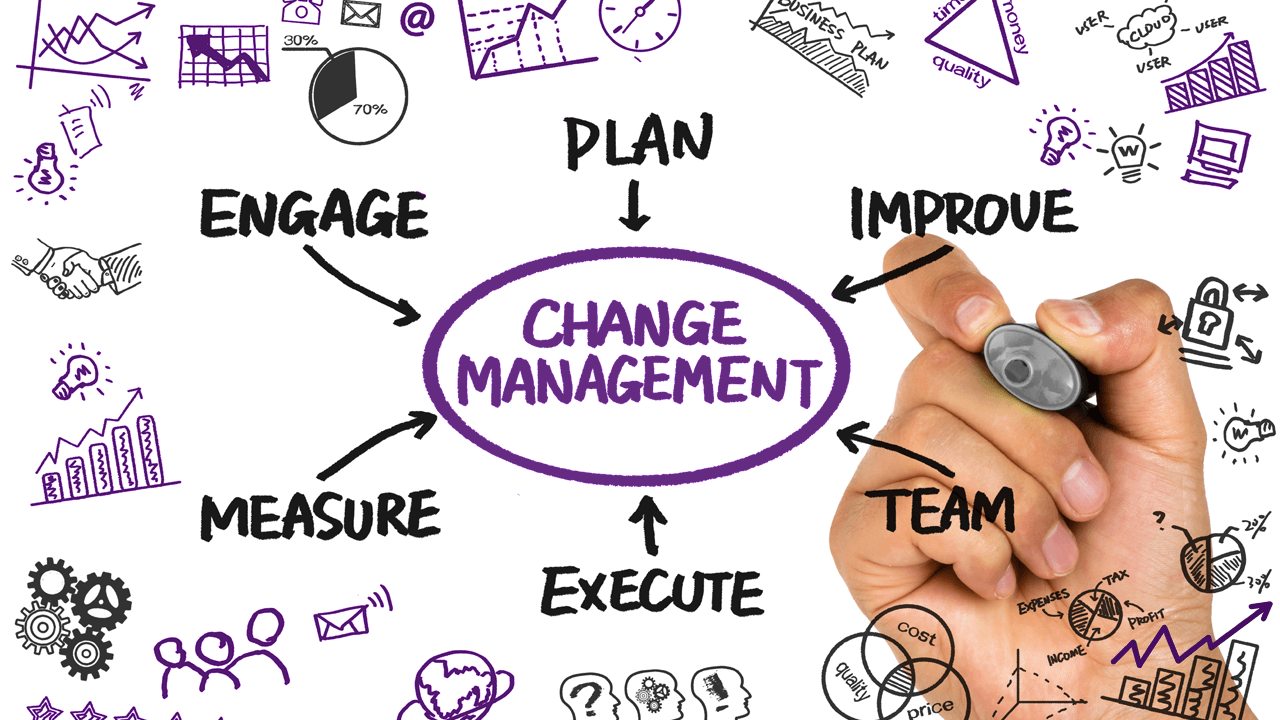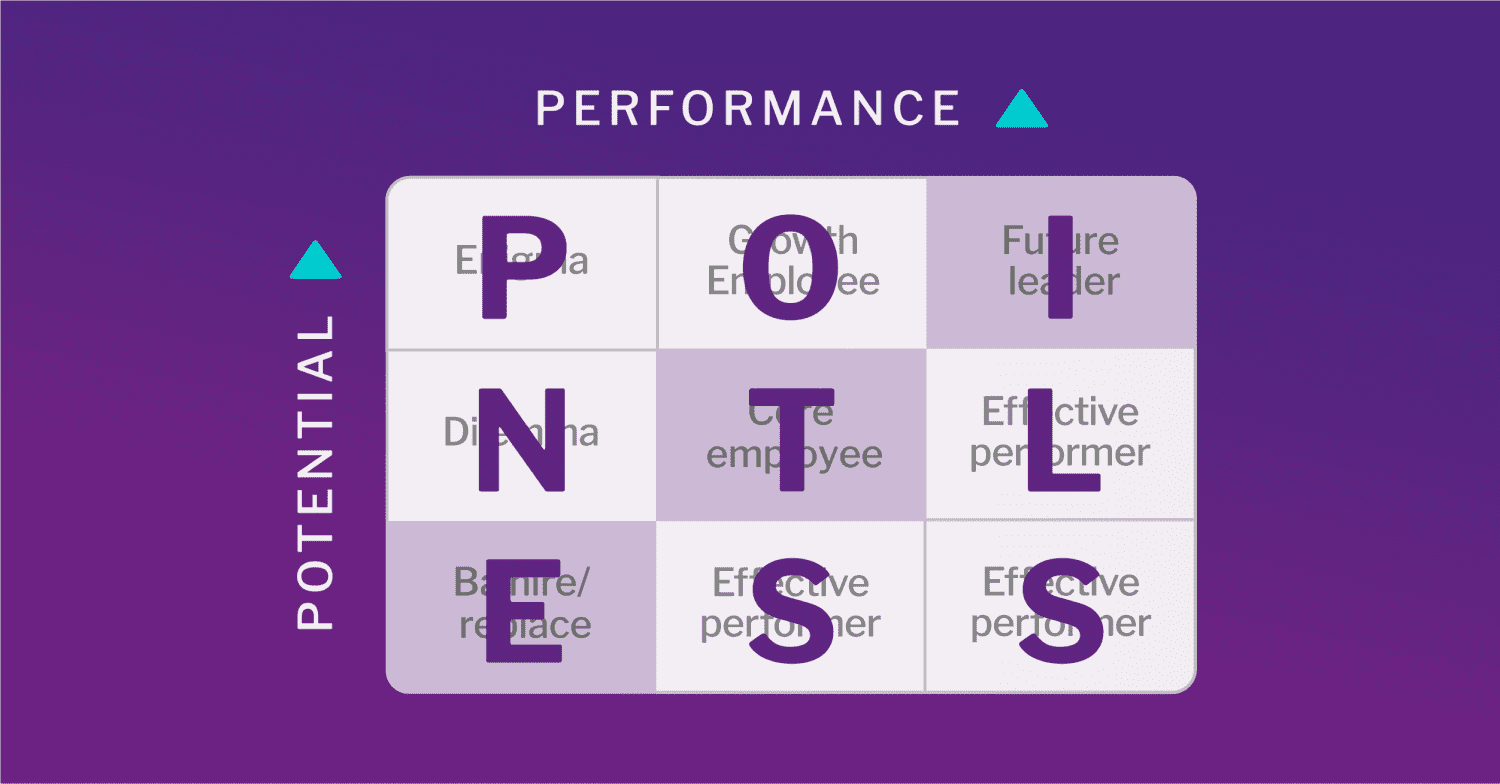When you’re in an operational HR role, creating the head space to re-think your approach can be really hard. I remember having back-to-back meetings, then getting to the end of the day and thinking – ‘right, now I need to have some BIG thoughts about the future’ – but choosing to go home and watch The West Wing instead! And yet, if we are going to equip our organisation, our leaders and our employees for a disrupted world, then we have to find a way of adding different stimuli and challenging our thinking.
Based on conversations with progressive HR professionals and what has worked for me – Here are some tips on how we can change our thinking in HR.
Focus on the human – not the process
I think we limit our thinking by setting very narrow parameters for what we’re trying to achieve. We want to innovate, but we often set our goal as being the reform of an existing process. This immediately restricts our creativity and results in small, incremental changes rather than the fundamental change we need. So, for example, we often get asked to help clients change their performance management system. There are two key assumptions that are immediately built into the activity – that performance can be ‘managed’ and that they need a system to do it. Not much innovation is going to result. Instead, you can try to broaden the challenge you’re undertaking – by focusing on the human – not the process – problem that you want to solve. So instead of changing the performance management system – ask yourselves ‘how can we enable people to improve their performance?’ Or ‘how can we enable people to be even better at their jobs?’
Widen your sources of stimulation
So, a small confession – when we created Disruptive HR we imagined that all we would need to do is to steal all the innovative ideas from our HR connections with Silicon Valley tech firms! Sadly, when it came down to it – there weren’t many genuinely fresh approaches to steal! So, we had to start from scratch. We found that the best ideas came – not from HR conferences, books and articles – but from adapting ideas from other disciplines. So, we went to conferences on behavioural science, we read books on psychology, we spoke to experts in marketing and advertising, we learned from agile product design. We widened our sources of stimulation. If we just listen to people like us or borrow from so-called best practice, we again limit our ability to be truly innovative. How could you widen your sources of stimulation? Could you invite your marketing colleagues to help you think through your employee experience? Could you learn from your digital colleagues how to move at pace through application of approaches such MVP or sprint planning? Could you broaden the subject matter of the books and articles you read? Could you attend conferences on topics other than HR? Chances are that these efforts will stimulate your thinking in ways that traditional L&D for HR can’t match.
Identify your red flags
Looking back to my time as an HR Director, I had a number of beliefs that prevented me from being braver and more innovative. My assumptions about the leaders, the employees, my team and even the way HR ‘should be done’ would result in me repeating traditional approaches. We all have these assumptions and beliefs but if we can see them as ‘red flags’ – signs that we are about to make the same mistakes, we can start to challenge them.
Maybe you hold beliefs that prevent you from changing the way you think – for example:
- Do you hear yourself saying ‘but if we don’t make it mandatory, they won’t do it?’ And does that take you back to our traditional approach of making managers do things rather than starting with our early adopters and working with them to attract other managers to participate? Does that particular red flag stop you from asking ‘why are they not using this HR process? And maybe if we change it, they might find it more useful?
- Do you find yourself thinking ‘but they won’t do it properly?’ and then creating lots of rules and prescriptive detail to make sure there’s no wriggle room? And does this prevent you from trusting people to use their judgement? Does this result in the HR team having to play the role of compliance officer, rather than coaching managers to build their capabilities?
So, if we widen our sources of stimulation, focus on the human challenge – not the process one and challenge our personal red flags, then we have a chance to genuinely build fresh thinking in HR.
We’ve come a long way since the early days of ‘Personnel’! These days we’re all about enabling people to do their best work and not just serving leaders or employees. Are you ‘fully evolved’?!

Download the infographic here.
We keep saying that the world around us is changing but in many ways we continue to lead, engage and develop our people like we did in the 1980’s. Every organisation in every sector is trying to do create more of four things to ensure we survive and thrive – more agility, more productivity, more collaboration and more innovation.
If HR is going to create the conditions where our people can be more agile, productive, collaborative and innovative then we need a fundamentally new way of of doing what we do. This short video gives you an introduction to our framework for changing HR – the EACH Model – Employees as Adults, Consumers and Human beings.
When we started Disruptive HR seven years ago, even having the words ‘Disruptive’ and ‘HR’ together in our company name raised eyebrows. Now, our name isn’t so much of a provocation. It’s more a statement of fact! HR is disrupting – sometimes with rapid speed – often very slowly – but it’s happening! It is so great to see the increased appetite for change. The continued increase in business challenges such as digitisation, plus major global events such as the pandemic, the war in Ukraine or #MeToo and Black Lives Matter have combined to prompt even the most traditional to think ‘Maybe it IS time to do something different in how we lead and engage our people?’
We are seeing bold and ambitious people plans. And we’re seeing business leaders making greater demands of their HR colleagues. But are we ready for this increased appetite? When we look at the team around us who will take on these challenges to do HR differently – are we confident that they have the skills, the mindsets, the experiences and the relationships to make it happen?
If we’re not confident in their change readiness, then it won’t matter how ambitious our plans are, we won’t be able to deliver. So how can we check our team’s change readiness? I think we need to assess it against 5 criteria:
Credibility
Attitude
Skills
Relationships and
Resilience
Let’s break this down a bit.
Credibility
It’s not enough to actually have the skills and abilities to deliver – we need our leaders to believe that we can. Sadly, I still meet plenty of leaders who don’t see their HR business partners as having the wherewithal to deliver significant change. Their perception of us as ‘order takers’ for their people needs remains a problem. Ask yourself whether your team has a voice that’s heard and valued. Are you and your team seen as an essential part of strategic decision making? Do they genuinely want us at the important meetings because of our strategic insights – and not just for the potential employment legalities?
Attitude
One way of checking whether your team has a change ready attitude is to ask yourself, ‘how do my team get their sense of the value they add?’ Do they like providing a service to others, for example? Do they quite enjoy the power of being the HR compliance officer? Do they see their role as being about protecting employees from managers who can’t cut it?’ If you’re answering YES to any or all of these, you might have a problem. Change ready HR teams get their sense of value from creating the conditions where leaders and employees do their best work, not from a traditional caring parent or critical parental relationship.
Skills
Do your HR team really only excel in employee relations and employment policy? Yes? It’s not going to be enough! A change ready HR team needs to have a blend of skills in disciplines such as marketing, agile product design and behavioural science. If not, we risk trying to deliver the same old stuff in the same old ways.
Relationships
How tight is your team? Have they managed to overcome the traditional silos of Centres of Expertise and Business Partnering to work together on shared priorities? Are they comfortable challenging each other? Or do your team meetings comprise a series of ‘show and tells’ from each department, whilst their colleagues sit scrolling on their phones? And how about their relationships outside the team? Do they REALLY know the business and understand how the people agenda drives the commercials? Do they have impactful relationships with key stakeholders and understand how different HR products will land in their area? Do they have a strong range of connections outside of HR and the organisation – to bring outside intelligence in? Change is a team sport, and you’ll need these relationships if you’re going to succeed.
Resilience
And finally, how resilient are they? Embarking on significant change is not for the feint hearted. Will they be able to hold firm when the inevitable setbacks occur? Are they flexible enough to adapt their approaches and ideas if they seem to be facing a block in the road? Do they believe, deep down, that change has to happen – and not just telling what you want to hear? Above all, are they confident? Will they back themselves against the resistors and find agile ways of working round them to achieve the goals you’ve set yourselves. More than anything, you need them to believe in what you’re doing – and themselves as being ready to take on the change.
If you want to check out the change readiness of your HR team, why not check out the HR Team Change Readiness Diagnostic here
When we in HR want to achieve a change in behaviour, we tend to resort to a training programme as the way to help deliver it. I’ve done it countless times … Let’s say we wanted to deliver a change in leadership behaviour? I’d put on a day’s training around the skills required. This would usually involve designing the programme, finding an expert to deliver the content, co-ordinating peoples’ diaries and then counting the ‘no-shows’ on the day. I’d probably even throw in a bit of ‘making it mandatory’ just to make sure I’d got to everyone.
Now there are clearly some issues with this. Aside from the time it takes to get the training put on and the time taken from busy people, we know that the human brain will forget 80% of what’s it learned on the programme within 30 days – not because the attendees are stupid, but just because that’s how the human brain works.
We also know that if the people who’ve been trained don’t put their new skill into practice soon after, and don’t have the opportunity to practice it over a few weeks, it’s unlikely to stick.
An alternative you can use to influence behaviour is to use so-called ‘nudges’. Now in the purest sense, a nudge is about influencing the choices people make at the point where they are about to make them, as opposed to trying to push people into doing things using threats or regulations. One of the most famous examples of an effective nudge was used in the men’s urinals at Amsterdam’s Schipol airport. Instead of exhorting users to aim into the urinal properly, they etched an image of a housefly onto the urinals in the area they wanted them to aim! Very simple and very effective.
We can use these nudges in HR to help influence the behaviour of our leaders and employees too – by subtlety encouraging a different choice of behaviour at the point when a choice is being made.
Let’s look at a couple of examples:
Nudges are being used a lot in approaches to Diversity and Inclusion. At Pinterest, they simply suggested that hiring managers be more aware of the amount of hires they were making from under-represented groups. Just this simple prompt or nudge just before they went into interviewing led to a more diverse group of hires.
There’s also the example from the Chief Fire Officer for East Sussex Fire Service – a woman called Dawn Whittaker. When one of her female team passes an exam or does something notable, she sends a congratulations email with a little drawing of a fire chief’s helmet in it! It’s just a nudge to subliminally tell her female staff that they are good enough to think about the top job.
Boston Consulting Group uses nudges to help prevent burn out amongst their staff. They created a macro in the company email application that causes a pop-up window to appear whenever leaders attempt to send a message after hours. The nudge appears at the exact moment leaders need a reminder that the action they’re taking may be putting extra stress onto their teams who might think they should reply to the email immediately, even though it’s late. It doesn’t block their ability to send the message. It simply offers the choice of marking as low priority or deferring the email to the next day.
And finally, Google, who use this nudge technique – or ‘Whispers’ as they call them – to help influence behaviours. They send Whisper emails to managers suggesting one small leadership skill they might want to practice – and they also send an automated nudge email to hiring managers on the Sunday night before their new hire starts. Because let’s be honest, the Sunday before they start is typically when managers actually think about what they’re going to do during onboarding! The email prompts them to introduce them to a buddy and to get a few 1-2-1’s booked in.
So instead of a laborious and costly training programme, maybe you could think about introducing nudges to help you change behaviours.
HR has a bit of a ‘love-hate’ relationship with the finance function, don’t we? On the one hand, most HR professionals groan at the thought of Finance going anywhere near the people agenda. Insufficient empathy. Overly focused on the tangible assets and the numbers, rather than the intangible value of people. Too interested in short term deliverables and not enough in building long term capability. Too black and white in their judgements. Every HR professional I’ve ever known has voiced these concerns, particularly if we’re unlucky enough to report into them!
On the other, we admire and are slightly envious of their status amongst the leadership team. FDs never seem to struggle with impact and gravitas at the Board. They are pretty good at saying ‘no’ in ways that doesn’t seem to annoy our colleagues as much as when we do it. They are typically great at presenting a coherent argument based on intelligent data and analysis.
‘It’s not you, it’s me’
It’s time to make our relationship with the Finance team a bit healthier and, as in real life, it’s about changing our attitude, not theirs. And the first thing we need to do is to stop trying to BE them.
For too long, we have tried to compensate for our lower status in the hierarchy by copying them. We have adopted their language, for example. We use terms like ‘human capital’ or ‘FTE’s’. We talk about employees being our greatest ‘assets’. We even have our own ‘asset registers’ of people data where we list things like, how many we have, what they’re costing us, and their productivity, in terms of absenteeism rates and churn. But ‘assets’ are things like buildings or computers. We, in HR deal with human beings – beautiful, wonderful, frustrating, mercurial human beings. All of whom are different to one another, who have different needs and wants and who are essentially, unpredictable. Talking about them as assets undermines the complexity and value of our people.

It also means we don’t give our leaders the insights into their people that might help them make better decisions. Churn rates are relatively meaningless in the way we present them. If we are going to copy anyone, we could adopt the approaches used by our Marketing colleagues. Adapting techniques like consumer persona for our employees for example or using a blend of qualitative and quantitative measures to tell a strong and compelling narrative about how our people feel and might be persuaded to change their mindsets and behaviours. We need our own language – one that isn’t filled with finance-like words but which reflect the very different – and human – nature of our work.
You either believe people matter or you don’t

One of the most frequent requests we get from HR professionals is access to data that will help them convince their leaders that it’s worth doing things differently. For example, data that proves offering flexibility will improve engagement. Or proof that getting rid of ratings will improve performance. Or to quantify the ROI on our training investments. Now, I’m not saying that we shouldn’t evaluate what we do. But as the polarisation in the current vaccine debate shows us – data rarely convinces people to change their behaviour. We often find that asking for ‘data as proof’ is usually a way for leaders to put off making a decision or to camouflage their fear of change.
People are not as easy to measure as revenue or profit growth. It is incredibly hard to provide proof on people issues. Instead of trying to compile data that’s bound to be ignored or refuted – we need to appeal to our leaders’ common sense, their own relationships and experiences and the feedback from their own people. Take individual annual bonuses as an example. There’s a ton of data and research that shows individual bonuses fail to either motivate or drive the collaborative behaviours we need today. None of this has made the slightest difference to leaders’ preference for them. If we use scenarios, stories, compelling evidence from our people themselves – we might start to have more of an impact.
As I get older … and probably more impatient with leaders who aren’t prepared to acknowledge that people leadership needs to change… I am increasingly of the view that you either ‘get’ the people stuff – or you don’t. If we spent more time hiring and promoting leaders who ‘get it’ and less time trying to find proof for the ones who don’t – maybe we’d stand more of a chance!
Rather than trying to be as credible as the finance team by copying their language and approach, HR can build our credibility by being deliberately different. We will have a stronger and more powerful voice if we own our role as the people experts. We can do so much better than being a second-rate finance partner. We should stand proud as HR – the experts on human beings.
In this 5 minute video, we look at the most popular options for HR team structures and outline three key features of new HR team design.
Of course, you’ve all been making change happen regularly, particularly in the last two years. But how can we do it differently? How can we make HR change run more smoothly and have an impact that sustains? Now obviously, this is a huge topic, but I’m going to look at four change management essentials that I believe it’s worth thinking about.
First up is how you design the change. I deliberately use the word ‘design’ rather than ‘plan’, because when it comes to change, we need the mindset of product designers. Planning change is quite old-school. You remember the detailed project sheets we used to have? The Gantt charts – with a beginning, a middle and an end – with changes mapped out sequentially – and behavioural change plotted for 9 months later after a period of training programmes.
Of course, change isn’t like that is it? The new approach to change design is all about being led by insights into our end-users or leaders and employees. It’s about designing around employee persona – the clusters of different motivations and fears that exist within your organisation. Change design is about deploying agile design techniques such as MVP, sprint planning, early adopters and co-creation. If you’ve got a detailed two year change management plan, you might need to rip it up and approach it from a change design perspective instead!


Next up for change management essentials is thinking about how you’re are going to persuade people to be open to the change.
No matter how many times say this is important, we tend to focus on the mechanics of change rather than the psychology. I’m not saying we need to get degrees in psychiatry, but HR does need to re-claim our role as the human experts. Persuasion is not about presenting a logical business case and then training people in new skills. Persuasion is about:
- Understanding people’s resistance to change and working with that
- Creating an environment of psychological safety for people to try new things
- Making the changes required seem really small so that they are less off-putting
- Finding the right influencers who can help you build change momentum – peer to peer
The third change essential is creating behavioural shifts – changing habits, helping new behaviours become the norm – again, a totally neglected area of HR in my opinion. However, I know that many of you are already starting to use techniques like nudging to good effect. But there are others too that work really well – like re-framing – where you help people look at an issue through a different lens. These behavioural change techniques need to be part of every HR professional’s toolkit.
Finally, the fourth essential is marketing the change. Not communicating the change – marketing it, selling it. We have to adopt marketing techniques if we’re going to make it happen and stick. We have to rethink the language we use, the way we brand or name our new products. We can use techniques like permission marketing or content marketing to build and engage our audience. And we need to build critical mass and momentum through working first with the ones who might be up for something different. We cannot force people to change so we are better off ignoring the biggest resistors and focusing on where we can get some traction.
So, in summary, new change management is about using new design techniques, investing time and skill on persuading people to change their behaviour and marketing and selling it effectively.
As unpopular as it might be with leaders who often crave certainty, great HR is just ‘messy’. The HR leaders who are having the most impact, who are creating the conditions where people and organisations can thrive in our disrupted world are those who have the courage to avoid the neat solutions and instead offer light-touch, agile and less perfect solutions to the challenges we face.
Messy HR has a number of features that differentiates it from the traditional neater version;
- It avoids ‘one-size-fits-all’ solutions and prefers customised approaches based on the specific needs and preferences of its customers
- It avoids big programmatic solutions and prefers small, incremental, organic change
- It rarely mandates or insists upon compliance and prefers to build participation through effective marketing strategies
- It uses smart cognitive and emotive change levers rather than believing a process can change behaviours
So, what do these messy HR solutions look like in practice? I thought it would be useful to look at one of our most popular ‘neat’ HR processes – talent management and compare it to the newer messier alternative.
The neat approach to talent management The traditional neat approach is all about the annual completion of the 9 Box Grid as part of our annual talent review, seeing this as the complete picture of talent strength.
The leaders I have worked with who seemed to enjoy the Annual Talent Review were always those who got a kick from structure and process rather than the great people leaders. The latter were able to do the exercise fairly quickly, but it didn’t create any real value for them as they already had a clear picture in their mind about their people and some idea about how they were going to develop, manage or reward each of them. The leaders who enjoyed the process of neatly categorising were typically the ones who did little with the results and saw the activity as being completed the moment they placed the last name on the grid. We know that great talent management is all about movement – moving up, around, in, out and yet the 9 Box Grid often fails to generate that movement and becomes more about allocation. I can see that having a snap shot of your senior teams at a point in time might be useful as a wake-up call or a reassurance but not much more and, given the inaccuracy of that snap shot, why bother to do even that?

It’s not unusual for talent reviews in larger organisations to take several months to complete. Not only is this time consuming for questionable results, it just doesn’t mirror the true pace of most organisations. Every Talent Review I’ve ever produced was always out of date by the time it was complete and leaders who want to move quickly to recruit or promote are justified in their irritation at the time it takes to get a perfect picture.
So, we spend crazy amounts of time and effort producing a complicated (but neat!) grid that is inaccurate and doesn’t add value. Not a great use of time at best and at worst, yet another HR activity that fails to add value and damages our credibility. Finally, messier alternatives are emerging with much greater impact.

So what’s the ‘Messy’ Alternative to the Annual Talent Review? Firstly, it’s not annual! Instead we’re seeing much more fluid and dynamic talent processes and interventions that don’t have a rigid and irrelevant timetable. Approaches like Western Union’s approach where they get clusters of leaders together for an hour a month to ‘talk talent’. No documentation to fill in, no 9 box grids – just conversations about their teams. I’ve always found that most leaders like to talk about their people, they just don’t like doing the paperwork. Getting leaders to discuss talent on a regular basis helps them get better at it too.
Secondly, we’re seeing greater customisation to reflect the different needs of the talent themselves. At 3M, the HR team identified a number of different segments based on the employees’ main motivation for working at 3M. Three examples of these clusters include employees who are:
“In it for my life”—those motivated by alternative work arrangements, as in “I have a life.”
“In it to win it”—those motivated by a fast-paced, highly challenging, risk-taking environment.
“In it to experience it”—those motivated by developmental stretch assignments.
The clusters provide managers with the ability to tailor programs to various employee needs rather than a one-size-fits-all approach to career development.
Thirdly, talent management is much less about focusing on an elite few who have been anointed during the talent management process but instead about creating an environment where employees are encouraged to take responsibility for their own career development. Initiatives such as Nielsen’s ‘Ready to Rotate’ where employees are encouraged to flag when they believe they are ready to do something different is a great example of this change of ownership.
Finally, messier talent management is all about regular conversations between a line manager and their team, not the once a year career discussion at the annual appraisal. Numerous organisations are now embracing this less structured approach and encouraging leaders to have frequent check-ins which include discussions about career development instead.
Messy HR is often going to be harder sell to our Execs than the neater one. Providing proof of leadership capabilities or talent bench strength feels good because it offers the seductive illusion of certainty. Advocating approaches where there are no guarantees, where ‘it depends’, where it takes longer and where it’s harder to measure may meet with greater resistance but it’s honest and in the long run will deliver greater results. I believe the truly impactful HR teams are the ones who are brave enough to promote ‘messy’ in a world that craves ‘neatness’.
Our talent strategies are full of movement; plans to promote, to increase responsibilities, to rotate. We focus our energies on building skills and retaining our top talent. But rarely have I seen a talent strategy that tackles the biggest barrier to our talent plans – getting people to leave.
So, why do we need to encourage people to leave, or at least do something different?
Well, there’s a distinct possibility that they’ll get stale if they stay too long in role. They don’t become a poor performer, but their ability to innovate, challenge and refresh can become diluted.
Secondly, because our talent strategies rely upon having space at the top for people to move into. Waiting for someone to leave is frustrating when you’re ready to make that next move. And one of two things happen, our future talent finds promotion elsewhere or they start to get stale themselves – blocking career paths from their juniors in their turn.
Thirdly, we need a strategy to help people move on because it’s difficult to do. They have given their commitment, their time, their loyalty, and their departure should be handled with dignity and respect. What typically happens is that we tend to ignore the issue – until suddenly their exit is essential and urgent. Then we’re trying to negotiate with someone who’s scared, hurt and angry. We end up with bad feeling, disruption and of course, expensive severance pay-outs.
So, how can our talent strategy address this sensitive, but vital area? This short video looks at some options.